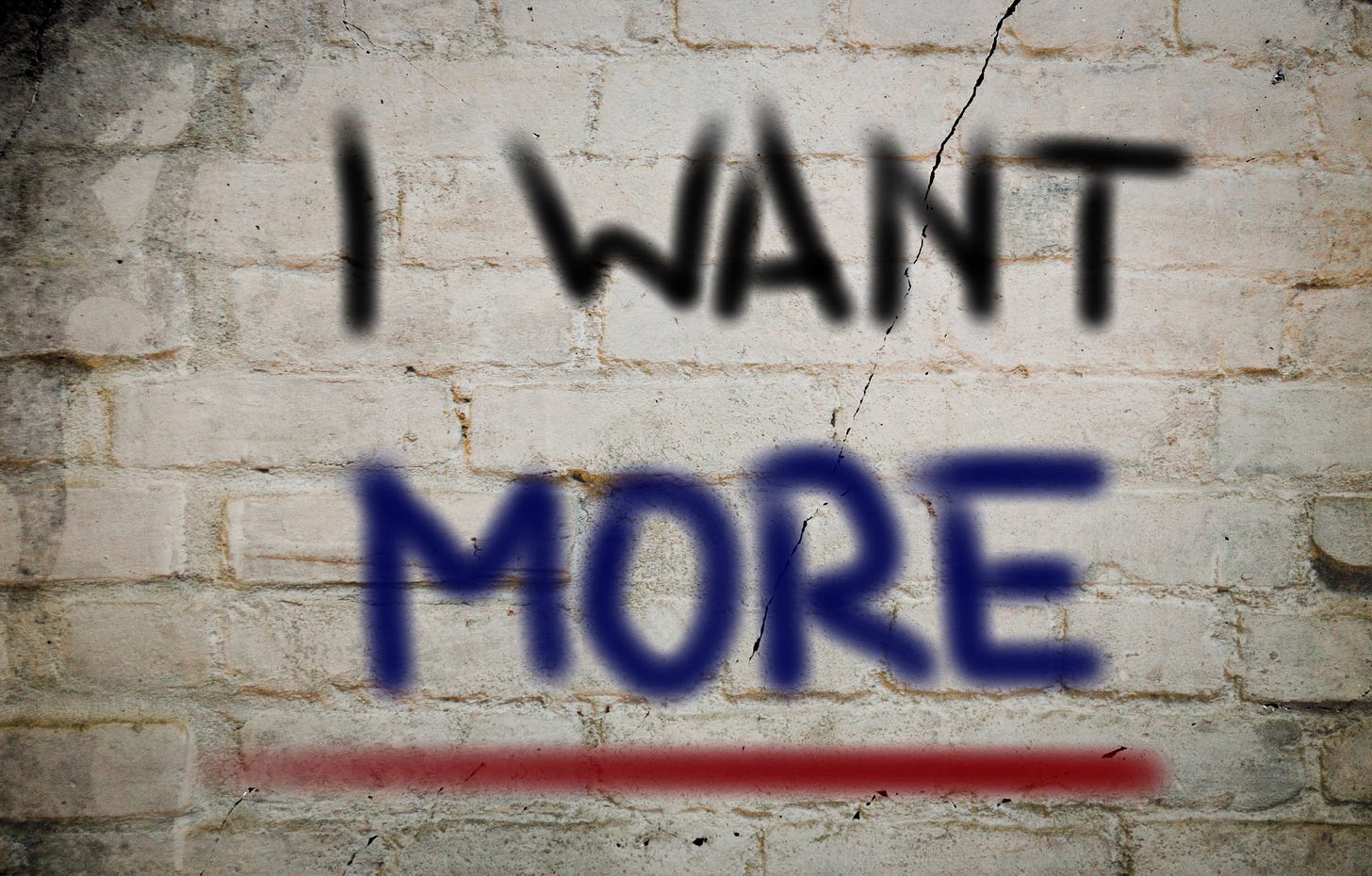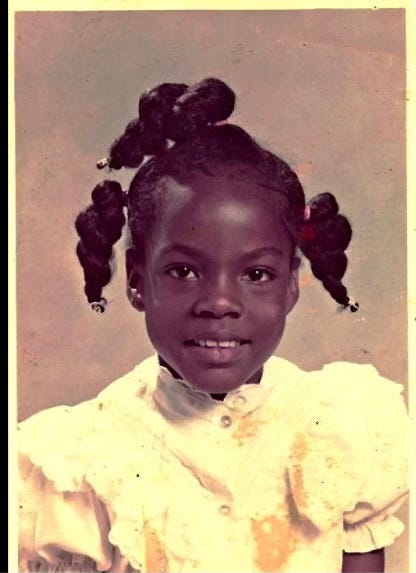Trump's Big Beautiful Bill: A Case of Reverse Robin Hood
Here's How More than $1B in Cuts to Medicaid and SNAP Will Impact Everyone

Growing up, my young, single mother relied on a bundle of social safety net programs to make ends meet and provide for my brother and me. The Administration is attacking three of those programs—Medicaid, SNAP, and Head Start. And to be completely honest, I am not at all surprised.
It’s a classic bully strategy: focus on the people or groups you believe don’t have enough power to fight back or do anything about it. In this instance, we’re talking about women, the working poor, the elderly, the disabled, immigrants, children, and the people who love them. No one will care too much—or at least not enough to actually do something about it—because they’ll just be glad it’s not happening to them.
In a more hopeful moment, this is where I’d say something to the effect of “this, thinking is all wrong, and we’re all in this together or a harm done to one is a harm done to all,” but I can’t because, for the most part, it feels true—most seem to be trying their hardest to stay out of the way or looking out for themselves or their tribe—and that’s precisely what the Administration wants us to do too.
With Trump, there’s so much distraction and chaos that it’s hard to know where to focus our attention. Is it the tariffs? The Budget? The $400 million gift plane from Qatar (that’s definitely not a bribe)? Afrikaner Refugees? Harvard? DOGE? ICE? Trump’s blue suit during the Pope’s funeral? The Executive Orders? The attacks on Federal Judges? The Mass Firings?
There is never a shortage of Trumpian attention-stealers to distract us from the real dangers posed by this Administration and Congress. If the trifecta of planned cuts to SNAP, Medicaid, and Head Start occurs, it will take generations to repair the damage done to families, communities, systems, and our institutions.
So let’s cut through the Noise—Here’s what you need to know about Trump’s “Big Beautiful Bill” and how it will Impact Most of Us.
After an all-nighter of haggling and negotiating by three congressional committees, the House is set to vote on Trump’s “One Big, Beautiful Bill.” But it’s actually not beautiful at all—in fact, it’s pretty heinous. It’s giving the ugliest dog in the world trophy status.
A Case of Reverse Robin Hood
In a nutshell, the bill proposes to permanently extend Trump’s 2017 tax cuts for the wealthiest Americans by cutting $290 billion from the SNAP program and $715 billion from Medicaid. This amount is hardly one-quarter of the substantial price tag of $4 trillion (likely an underestimate) required to extend the tax cuts.
The Administration and Congress are pulling a reverse Robin Hood—robbing the poor and vulnerable to give more to the rich and mighty.
Who will be impacted by cuts to Medicaid and SNAP?
As it turns out, nearly everyone—women, children, the disabled, the poor, and the elderly. SNAP and Medicaid programs support over 113 million Americans, including many low-income women and families.
Eighty-four million Americans rely on Medicaid for their health insurance. It is the single largest source of health care coverage in the United States. Cuts would leave about 8.6 million individuals without health insurance.
Roughly 14.49 million American workers live in households participating in the SNAP program, and 22 percent of lower-wage workers rely on Medicaid for health insurance.
For approximately 18.5 million adult women (ages 19-64), Medicaid is their primary or sole source of health insurance, and the program covers 41% of all births in the U.S.
30 million children and 15 million people with disabilities rely on Medicaid for their health care
For many older adults, Medicaid is their only safety net and is the primary payer for nursing care, covering 63 percent of nursing home residents.
Cuts to Medicaid and SNAP, no matter how small, will exacerbate and increase health disparities for women and increase food insecurity for millions of individuals and families across the country.
So, what are the cuts about?
Cuts to SNAP and Medicaid aren’t about Savings or Rooting out Fraud.
Social safety net programs like SNAP account for only about 7 percent of the federal budget (or $476 billion), and Medicaid’s share is a meager 9 percent. These programs help keep millions of individuals and families out of poverty and provide access to life-saving medical treatment and care.
Simply put, these cuts are about greed and power. They make the powerless even more vulnerable while allowing the most powerful to remain untouchable and out of touch. There is no accountability.
Did anyone ask for these cuts?
Over the last few months, I’ve often wondered who wants or is asking for the inhumane policies and actions coming out of this Administration or Congress.
It turns out that, aside from the Republicans in Congress and MAGA diehards, more than half of Americans do not support the Administration’s actions and policies. The same is true for cuts in Medicaid and SNAP. Most Americans believe these programs are essential and beneficial for families and communities, and many know someone who benefits directly from both.
Sixty-four percent of Americans hold a favorable opinion of SNAP, and Fifty-nine percent say they oppose cutting or reducing SNAP.
In a recent Kaiser Family Foundation poll, 9 out of 10 adults say Medicaid is “very” or “somewhat” important to their local community. In the same poll, forty percent of respondents say they want Medicaid funding to remain the same, and an additional 42 percent want to increase funding for the program.
What this tells me is that these proposed cuts are not the will of the people. They are the will of the greedy.
Here’s the bottom line:
Cuts to Medicaid and SNAP will impact everyone, even if you have private insurance from your employer or do not consider yourself food insecure. Many Americans are just one or two paychecks, or a catastrophe, away from relying on either or both programs. And even if you never face hardship, to be sure, when millions of people lose their health insurance, healthcare costs will rise for everyone.
These cuts will also harm the most vulnerable women, families, and communities, exacerbate existing health disparities, and increase food insecurity. Additionally, they will strain our already fragile healthcare systems and hospitals.
Quite simply, we cannot afford these cuts.
Are you angry? Do you feel helpless? Are You Concerned About the Cuts? Here’s What You Can Do
Tell Them How You Really Feel
My first offering is almost never to suggest that you call Congress, it always feels lazy to me, but this is an exception. Reach out to them, visit their home offices, or go to the Nation’s Capitol—people are already there making good trouble. Contact your local or state elected officials (including Governors), too—they need to know how you feel.
And if I can add, don’t just contact your representative or a member affiliated with your political party—contact everyone—Republicans, Independents, Democrats, the Green Party, and the Working People’s Party—whoever. The urgency of what we want or what we want to stop goes beyond party lines.
And since no one answers the phone anymore—literally, their voicemail boxes are overflowing with messages—Get at them on X or follow them on Instagram, Threads, TikTok, Blue Sky, or SNAP (whatever your social platform of choice may be)—and tell them how you feel and how the cuts will impact you or the people you love.
Want to Do More?
If calling, writing a letter, or @’ing someone on social media aren’t your thing, find a rally, town hall meeting, or march in your area and attend or hold one yourself. We need all boots on the ground. Bring your fan if you must, but just get there.
And lastly, say something or tell someone what’s going on!
While this seems obvious, it’s not happening as much as it should. We have become afraid to talk about politics or about what’s going on because we fear saying the wrong thing or alienating ourselves from friends or loved ones. Feel the Fear and Do it Anyway!
Tell a friend or family member who may be more focused on the Diddy trial or who is too busy working or taking care of their family, what’s going on—they may have missed it. For sure, they need to know what’s going on and what’s at stake.
Several years ago, the National Head Start Association invited me to deliver the keynote address at their annual conference. In my speech, I expressed my gratitude for the gift that is my love of learning and for recognizing my potential as a small brown girl in the world. My heart breaks because I know that when and if these cuts happen, thousands of little girls like me may never have the opportunity to experience that kind of love and support. And many more will go hungry.
These cuts, along with the Administration's other actions and policies are an attack on all of us, and we should take it personally.







Feel the Fear and Do it Anyway - yes! I notice in my conversations that sometimes, when we're unsure, it turns out the person we're talking to often feels the same as we do (maybe it's that *they* were also afraid to speak first or bring it up at all). We need to communicate with friends, neighbors, and strangers so we're all informed and can make change. Thanks for this.